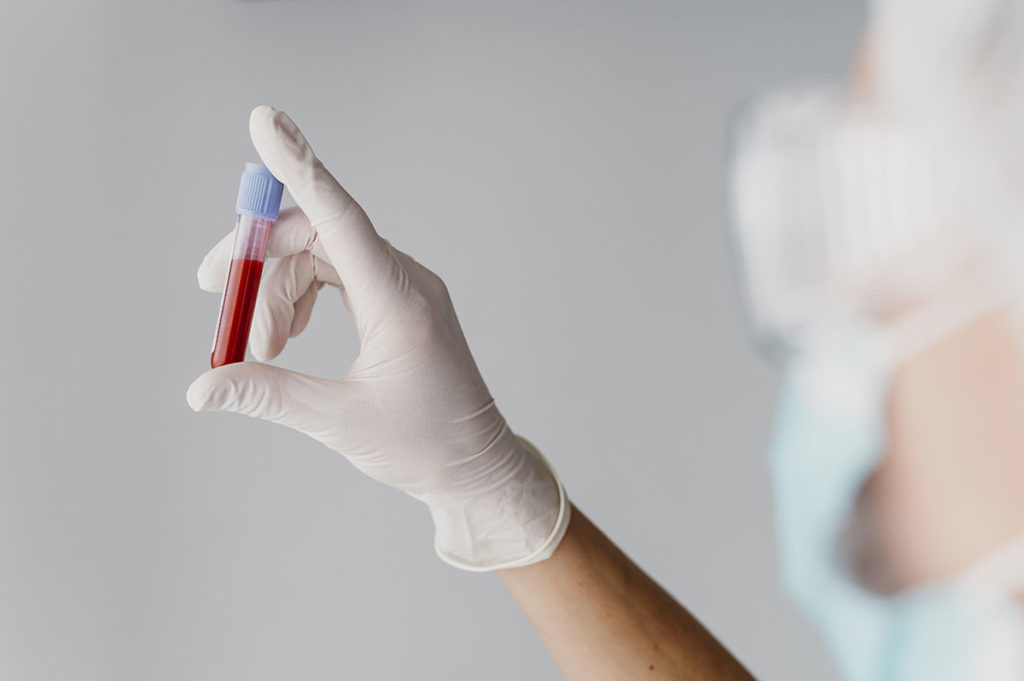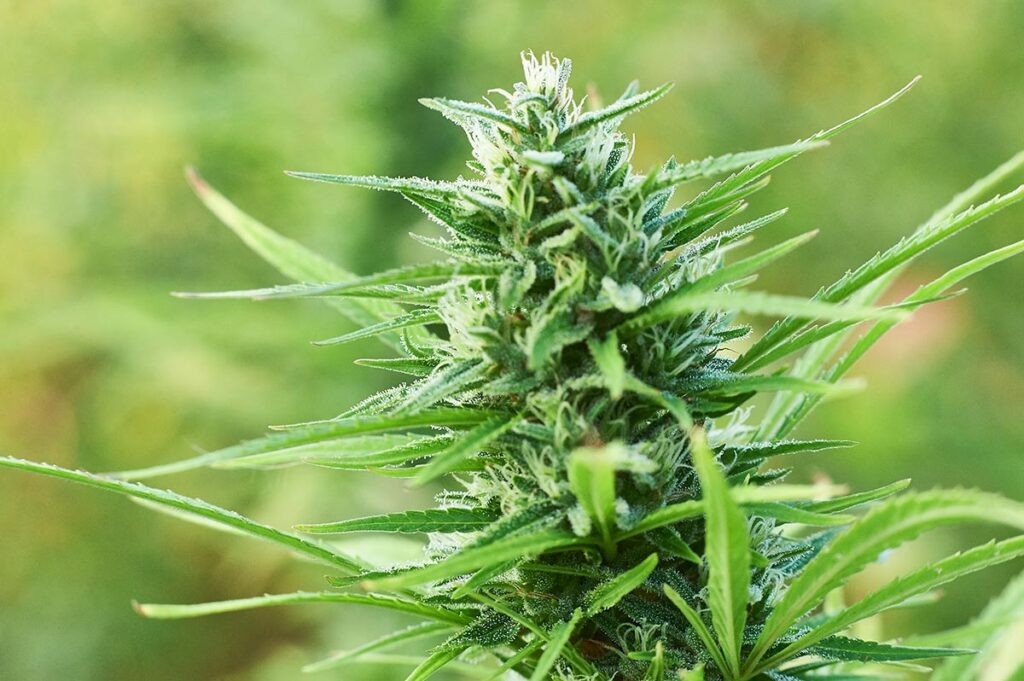Celiac /coeliac disease is a common autoimmune disease that affects about one in every hundred individuals worldwide. It has the potential to cause severe long-term complications.
If you’ve been wondering whether cannabis and CBD could help treat coeliac disease, here’s everything you need to know.
What is celiac disease?
Also known as celiac sprue, non-tropical sprue, and gluten sensitive enteropathy, this autoimmune disease is based in the small intestine. It causes the body to react to the gluten found in wheat, rye, and barley.
How does it affect the body?
When celiac disease isn’t treated it can lead to symptoms such as weight-loss and diarrhea, and in some cases other long-term health problems. Babies growth may be stunted, and pregnant women may find that their baby’s birth weight is lower than average.
When it affects older children and adults, it can cause “brain fog” and a general lack of energy. Celiac can also affect bones, making them weak. This can lead to osteoporosis or even fractures after minor falls or injuries. It can also lead to cancer such as intestinal lymphoma but this is much rarer than most other celiac-related issues.
Untreated patients can be at risk from malnutrition due to the low absorption of nutrients through food. Treating celiac disease right away is therefore very important before any more damage occurs.
Celiac disease symptoms include:
- general malaise
- abdominal pain
- stomach cramps
- vomiting
- diarrhea
- Itchy rash
- malnutrition
- weight loss
Celiac disease symptoms are often mistaken for other gastrointestinal tract issues such as irritable bowel syndrome. These symptoms are not limited to intestinal abnormalities but also cause neurological problems that include ataxia or weakness of the arms or legs, peripheral neuropathy leading to tingling feelings in the hands and feet, numbness of the legs and arms, headaches, tinnitus or ringing in ears, difficulty with balance and slurred speech.
It is worth mentioning that celiac patients also have a 50% chance of passing on the genetic mutation to their offspring.

How to diagnose celiac disease
Celiac disease can be diagnosed with an antibody blood test, or through a genetic blood test looking for mutations in the genes. In extreme cases a biopsy of the small intestine may be necessary.
Conventional treatments for celiac disease
Conventional treatments for celiac disease are typically aimed at modifying diet. Patients are instructed to avoid eating gluten and carbohydrates that can be converted into gluten. Celiacs need to remain on a gluten-free diet, in order for the symptoms to diminish or disappear.
What is CBD?
CBD is a cannabinoid that comes from the Cannabis Sativa plant. It has no psychoactive effects and does not give users a “high” feeling, which makes it attractive to many consumers who want therapeutic effects but don’t care for the mind-altering side effects that come from THC consumption.
How does CBD work?
CBD works with the body’s endocannabinoid system. When we take CBD oil it affects certain receptors within this system leading to improved well being.
The endocannabinoid system
The endocannabinoid system (ECS) is a network of receptors in the brain, immune system, and other parts of the body. It is responsible for regulating a variety of physiological processes including appetite, pain-sensation, hormones, mood and memory. It works through a system of receptors and neurotransmitters
CBD works primarily by interacting with two types of ECS receptor in the brain and body: cannabinoid type I (CB1) and II (CB2).
This interaction helps the ECS to function more effectively, breaking down the neurotransmitters less quickly. As well as this CBD has anti-inflammatory properties and will promote healthy cell growth throughout your body by reducing inflammation while increasing healthy digestive function.
Studies on CBD and cannabis for celiac disease
There are few celiac disease studies that have examined treatment with cannabis or CBD, but the scientific community has produced some encouraging results.
The Journal of Clinical Gastroenterology published a study investagating cannabis usage among celiacs.
Over 59% of the survey’s participants said they had used cannabis. Of these, 46% of those without celiac disease reported using it on a regular basis compared to just 6% of diagnosed celiac patients.
However, around 66% of undiagnosed celiacs utilized cannabis on a regular basis, as well as another 51% of non-celiac individuals who avoided gluten.
This implies that individuals may be using marijuana to treat celiac disease before receiving an official diagnosis. However, when people begin to avoid gluten more strictly, the need to medicate may lessen.

In 2011 an Italian researcher published a study in the scientific journal PLOS assessing the prospect of reducing intestinal inflammation with CBD therapy.
They concluded that CBD inhibits inflammatory responses in the intestine, and protects against intestinal damage, one of the symptoms of celiac disease.
However, more research into the therapeutic potential of CBD in reducing the symptoms of gluten intolerance is definitely needed.
How to use CBD with celiac disease
Many sufferers use CBD to provide relief and manage celiac disease symptoms.
CBD can be ingested in a number of ways, including through capsules, vaping or oil taken under the tongue.
This makes it easy to take CBD alongside celiac medications.
CBD oil capsules are small and easily swallowed, unlike other forms of the product which can be difficult for people with celiac disease who find swallowing difficult or uncomfortable.
Vaping is another way to use CBD, as heating the product turns it into a vapor that can be inhaled using an e-cigarette device. This method may also help reduce any digestive issues associated with ingesting CBD orally.
CBD oil comes in many different strengths, and forms such as Full Spectrum and Broad Spectrum. It is best taken sublingually (under the tongue) as it enters the blood stream more quickly via the mucous membranes we have there.
The advantage of CBD oil is that it remains in the system for some 6-8 hours, meaning that taking 3 times a day can give 24 hour relief.
If you have celiac disease please always speak to your doctor first before taking these CBD products/methods mentioned in this post.
The benefits of using CBD for celiac with a gluten free diet
Using CBD for celiac disease along with a gluten free diet appears to offer many great benefits:
- improved mood
- reduction in symptoms
- increase of appetite
- relief of celiac pain
- increase in energy levels
Obviously a reduction in symptoms is going to put you in a better mood because your body isn’t dealing with the physical stress of the celiac diseases’ onslaught on your stomach’s lining.

Dosage guide
There are no studies on the correct dosage for celiac so it’s best to take small doses at first, observe how your body responds, then gradually increase until you find what works best.
Some people find relief with as little as 5mg a day, so start low and increase it until you find the minimum effective dose.
There is no clear maximum dose, in fact many studies have involved participants taking 300 – 500 mg a day, but it is always best to aim for maximum effect from minimum dosage.
Other ways CBD can help people suffering from gluten intolerance or other autoimmune disorders
CBD can also help celiacs by reducing:
- constipation
- diarrhea
- abdominal pain
- weight loss
- malnutrition.
For some celiac sufferers who experience neuropathy or nerve damage, the anti-inflammatory effects of cannabis can be especially helpful.
Side effects of CBD
CBD has generally been found to be a safe and beneficial supplement for celiac patients who are following a celiac diet. However there are certain side effects that it is good to be aware of.
The most common include:
- dry mouth
- diarrhea
- nausea
- fatigue
Other ways to treat celiac disease – diet, medication, and surgery
The best way to control celiac is through diet. This will help to maintain it in remission and prevent any flare-ups. The ideal diet needs to be gluten free, low in lactose, high in fibre, and include enough calories. The goal is to get patients to eat as much varied food as possible while avoiding the foods they cannot eat.
A gluten-free diet does not work for everyone with celiac disease. Some people have symptoms even when they eat gluten free or stick to their “safe” foods list.
Alternative ways of treating celiac might include medication such as anti-inflammatory drugs that suppress immunity in your intestines so it can start making healthy tissue again without getting attacked by your body’s antibodies.
Surgery for celiac disease is an option when medications are no longer effective, or if they cannot be used. It can help both children and adults who have severe symptoms despite following a strict gluten-free diet.
FAQ
How long should you use CBD before seeing results and how much should you take each day?
Many celiac patients report that cannabis helps ease the symptoms of celiac disease. But before you can understand how long it will take for CBD to work, and what dose is right for your body, you might need a little bit more information about celiac disease itself.
How long will It take?
The effects of most medicines are not immediate because they involve chemical processes in our bodies—including ones we know very little about. For example, scientists still don’t completely understand all the ways THC (the psychoactive part of marijuana) affects us; but studies show that some people feel its anti-nausea benefits almost immediately while others do not experience any effect until several hours later, or even after several doses have been tried over time.
How can I find out if CBD is right for me, or my loved one with celiac disease?
It is always a good idea to talk to a medical professional before taking CBD oil for celiac disease, or any issue involving the intestinal tract, digestive system, or the body’s immune system. They can advise you of dosage and also ensure that there could be no issue with your current medical regime.

Ways to reduce the risk of developing celiac disease
There are some simple steps you can take to reduce your risk of celiac disease. These include:
- Eating a healthy, balanced diet. This includes getting enough fibre and avoiding processed foods
- Avoiding gluten if you are celiac or have celiac disease in the family as this triggers an immune response. Gluten is found in wheat, barley and rye.
- Taking vitamin D supplements
- Avoiding alcohol, smoking and recreational drugs as these can trigger celiac symptoms or make them worse.
- Getting enough sleep. This will help reduce stress levels that can trigger symptoms of the disease.
- Keeping a record of any symptoms that occur after eating foods containing gluten
- Having an annual health check with your doctor if you have risk factors for developing celiac disease such as being underweight or overweight.
READ MORE
Full spectrum CBD oil: what is it, and is it worth trying?







